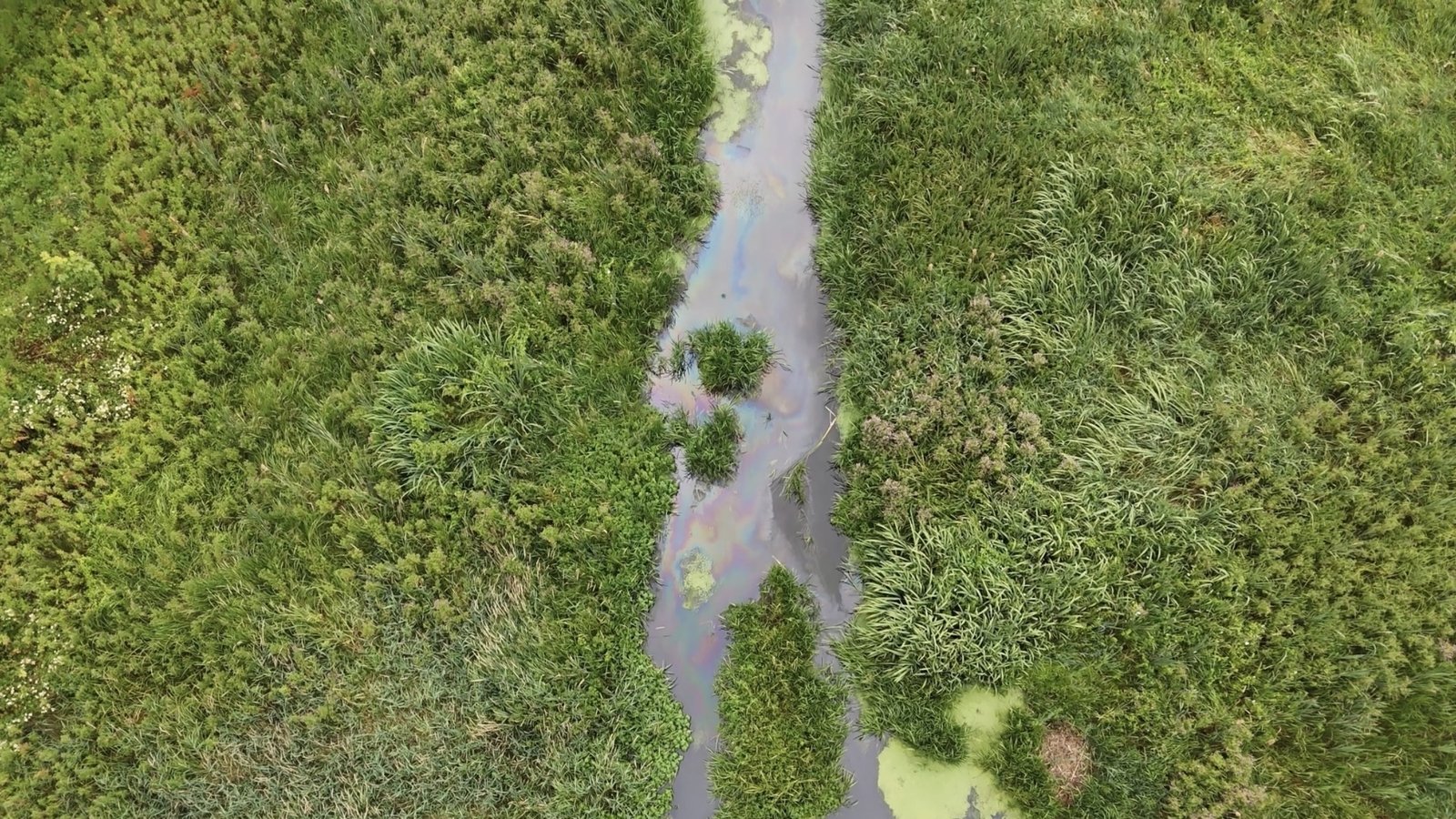Bank of Ireland has said that it sincerely apologises for an oil spill at one of its sites in south Dublin, which impacted a number of animals at a public park.
The diesel spill was detected at the bank’s data centre in Cabinteely.
The spill contaminated a lake in Kilbogget Park in the area. An assessment carried out on 16 July discovered diesel oil on the water, which was emitting strong fumes.
A family of swans with four cygnets were rescued at the location; volunteers continue to try to rescue other water birds from the area.
A spokesperson for Bank of Ireland said that it engaged with the Environmental Protection Agency (EPA) and Dún Laoghaire-Rathdown County Council in relation to the spill.
“We would like to sincerely apologise to the local community for the impact caused,” the spokesperson said.
The EPA said that it was contacted by the bank yesterday about the oil spill, which happened following a delivery of fuel.
Meanwhile, a spokesperson for Dún Laoghaire-Rathdown County Council said that booms and pads have been installed at the Kilbogget Park site to absorb the oil spill.
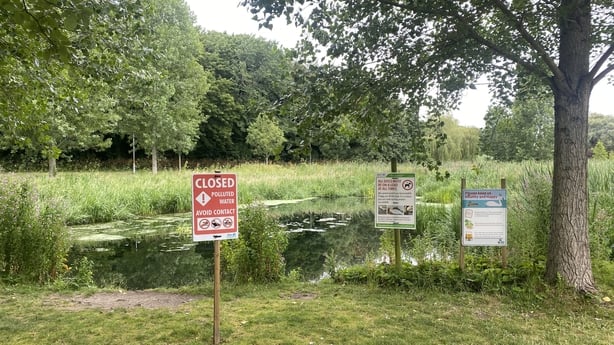
The council have erected a sign indicating polluted water at Kilbogget Park
The spokesperson said that the booms and pads will be replaced regularly while the oil is there.
Animal rescue efforts also took place in Laois following a separate oil spill this week.
Kildare Wildlife Rescue was alerted to an incident in the Kilminchy area of Portlaoise on 11 July, where severe oil pollution had affected three connected lakes in a residential area.
The incident impacted a range of wildlife, including a family of swans with four cygnets along with several mallards, moorhens, coots, cormorants and herons.
KWR had an emergency response team bring the swans to safety.
KWR Rescue Coordinator Pearse Stokes, who has attended numerous oil spills, said the fumes were among the strongest he had experienced.
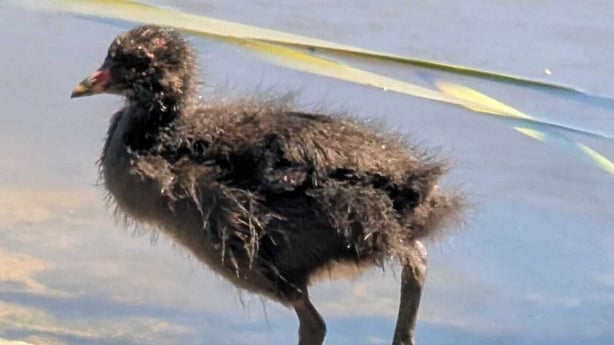
Moorhen chicks were affected by the spills
“The site at Kilbogget Park had the most intense fumes that I have ever encountered in any oiled wildlife response. This is not just concerning for the wildlife affected, but also a public safety concern for people and their pets walking and exercising in the park.
“This is a beautiful park with rich biodiversity and the impact of the oil will be severe on the wildlife in the area.”
Speaking on RTÉ’s News At One, he said: “Rescuing oiled wildlife is additionally difficult because you need to wear PPE like facemasks and gowns to protect yourself from the contaminates and working then in the high heat that we had last weekend.
“And with that heat also comes an added complication where the oil in the water is evaporating and becoming quite toxic fumes for people so it’s a kind of public safety concern, as well as a concern for the safety of our first responders and the wildlife.”
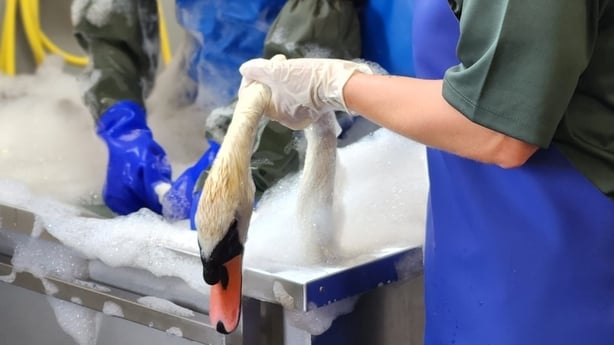
The rehabilitation of oiled birds can be a difficult proces
Mr Stokes said the rescue team gathered up the swan family that lives on that particular pond and brought them to Kildare Wildlife Rescue.
“We are all quietly very hopeful for both sets of swan families” that have been rescued, he said.
He said a few days later when they responded to the second oil spill in south Dublin, he experienced “the worst fumes” he ever encountered on an oil spill.
“We get a lot of them, but this was really, really heavy in the air and you couldn’t really spend too long in there just because of the smell.”
He said they will continue to monitor both sites and pick up any animals that are sick and need to be taken into care.
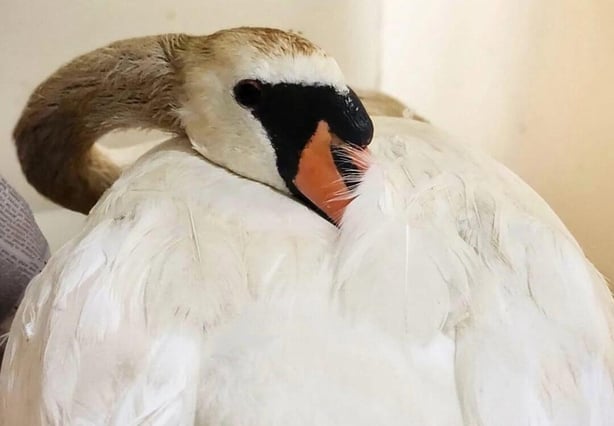
A female swan from Kilbogget is receiving intensive care
While the swan family from Laois are washed and stable, the charity said that the swans in Kilbogget are still undergoing treatment.
An adult female is the most affected and is receiving intensive care from the Village Vets Greyabbey.
The rehabilitation of oiled birds can be a difficult process, according to KWR Manager Dan Donoher.
“The birds need to first be stabilised, warmed and given fluid therapy,” he said.
“Washing can never be done on the same day, they need to be strong and pass multiple health checks before the stressful washing process begins.”
He said that both swam families will remain in their care until their territories are clean and safe again.
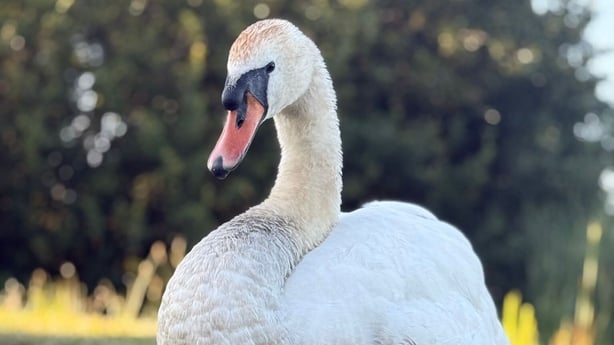
Both swam families will remain with KWR until their territories are clean and safe again
KWR currently has over 400 animals in its rehabilitation centre.
While the source of the spill in Laois remains unknown, local county councils have begun clean-up operations and opened investigations into a potential cause.
KWR thanked Dún Laoghaire-Rathdown County Council and Laois County Council for their support with the rescue efforts.
Additional reporting Helen Donohoe
